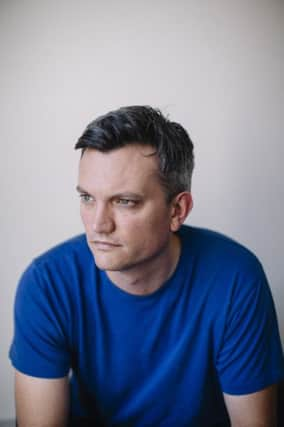Book review: To Be A Machine, by Mark O'Connell


Simon Fraser, Lord Lovat, went cheerfully to be beheaded on Tower Hill, declaring that he expected to be in paradise by noon. (Many thought the other place a more likely destination for the old rogue.) These days he might arrange for his head to be sent with all speed to the Alcor Life Extension Foundation in Phoenix, Arizona where it could be “cryopreserved” with a view to his brain being “uploaded” into an artificial body when the advance of science has made this possible.
When I was asked to review To Be a Machine, I demurred. Not my sort of thing. The editor prevailed, and I’m glad he did. This investigation of transhumanism by Mark O’Connell, an Irish journalist, is riveting, fascinating, comic and appalling. “Transhumanism is,” he says, “a liberation movement advocating nothing less than a total emancipation from biology itself by means of advanced machine intelligence and robotics. There is another way of seeing this, an equal and opposite interpretation, which is that this apparent liberation would in reality be nothing less than a final and total enslavement to technology”.
Advertisement
Hide AdO’Connell takes us on a tour of the transhumanist estate in its considerable diversity. Some of those he listens to are engaging, some seem loopy to the tonsils, others are frightening – the chaps, for instance, who seek to translate human brains into computers because computers are so much more efficient at, well, computation. In the course of his journey he attends a convention devoted to robots (and is amused to find a robot failing to master the mechanism of a door-knob). He investigates and introduces us (well, me anyway) to the idea of the “technological singularity”: “the term refers to a time to come in which machine intelligence greatly surpasses that of its human originators, and biological life is subsumed by technology”.
There are jokes to be made at the expense of the wilder enthusiasts he encounters, but transhumanism is no laughing matter. There are institutes investigating its possibilities at universities all over the USA and here too, in Oxford and Cambridge. The tech giants of California – Google and the like – are up to their ears in it. So of course is the Pentagon: advanced machine intelligence and robotics hold the key to the future of warfare. They’ve already gone a long way down that road.
Transhumanists are driven by discontent with the inadequacies of being human; we can escape these inadequacies only by becoming machines, or having machines implanted in our brains and bodies. Evolution has been a natural process, – unplanned, therefore inefficient. The application of machine intelligence can direct it effectively.
Transhumanists are not a coherent group. Some are chiefly interested in prolonging life, making illness, old age, decay and death unnecessary, things we can go beyond. In the most amusing chapter of the book, O’Connell goes on a road trip with one Zoltan who is running for President (of the USA) on “the immortality ticket”. Death, he hopes to persuade the electorate , is unnecessary. A belief in its inevitability is a form of complacency. He is accompanied by a rather charming young zealot who thinks “sexbots – AI robots built for having sex – will be the one really cool thing about being alive in the future”. Unlike a real girl, sexbots can’t cheat on you or give you an STD. Meanwhile he abstains from sex. He may have a long wait, but O’Connell is too polite to suggest he try masturbation.
O’Connell is a charming guide on this tour through what may be the future of humanity, charming and perceptive. He realizes that transhumanism is a game for the rich. He also realizes that it’s fundamentally a religion. Man was expelled from Eden; can we find a way back? Fear of death is a constant; man alone among animals can imagine it.
All religions have found their way of denying the finality of death; offering paradise (which Lovat expected) or reincarnation. Christianity preaches the immortality of the soul and even the resurrection of the body. For transhumanists, that may be an artificial body; why not? It can’t catch influenza or develop cancer. But, as O’Connell says, with uncharacteristic bleakness, in seeking to escape the limitations of being human, transhumanists are ready and eager to become the slaves of technology.
Advertisement
Hide AdRead this disturbing, yet highly enjoyable, book. It will make you wonder what sort of world your children and grandchildren will inhabit.
To Be A Machine, by Mark O’Connell, is published by Granta, £12.99